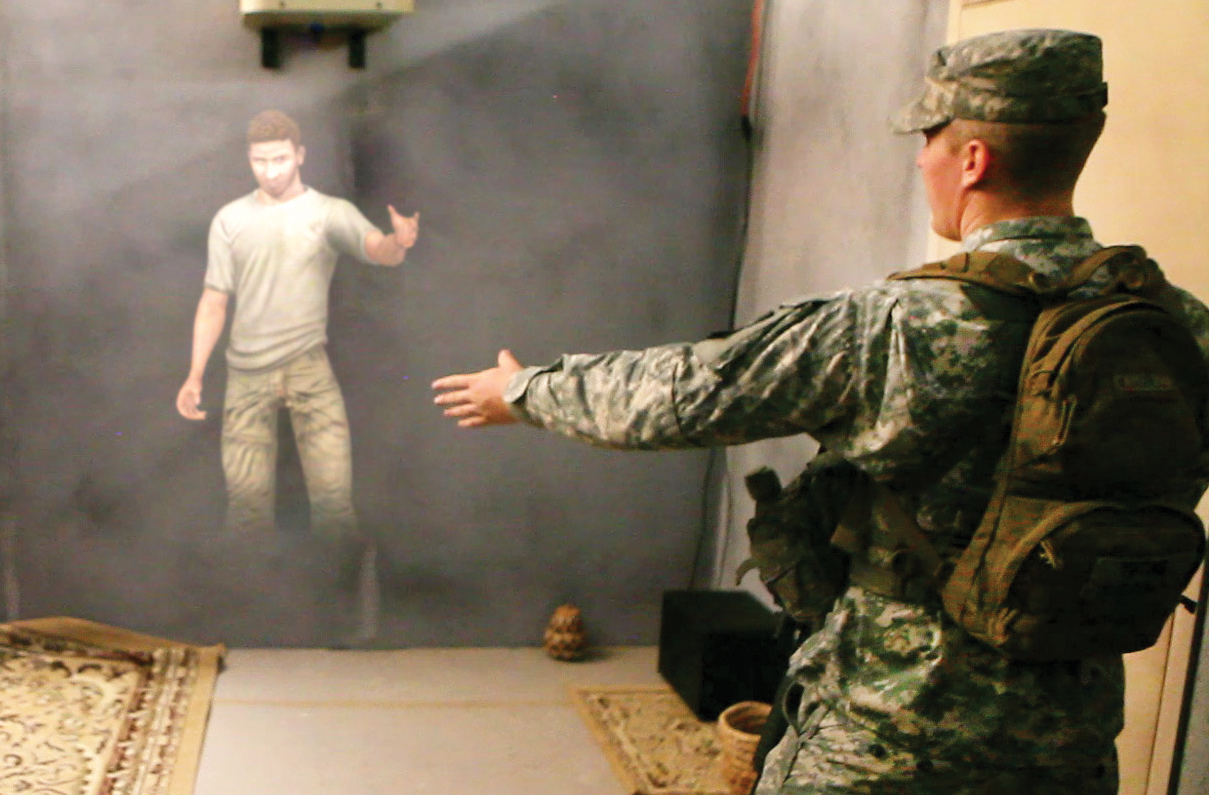Regardless of your career, training is an important aspect of professional growth. Disciplining the mind and body is no easy task, and not too long ago, training consisted of simply shadowing an employee or taking classes and reading books to better prepare you for the job. However, companies are beginning to utilize a new training hybrid: simulation training.
Simulation training is when trainees are placed in a simulated setting and are able to exercise various skills and techniques in a fake environment. This method of training is especially beneficial for military members and law enforcement officers, as they can experience a variety of demanding situations before they really happen.
“The whole point of simulation is to create a stressful situation in a safe environment,” Justin Kirkwood says.
Kirkwood is the director of simulation and training for Organic Motion. This field is emerging as a new and innovative way to prepare soldiers and law enforcement officers for various situations they may face.
Organic Motion, which has offices in New York, Orlando, Raleigh and Boston, utilizes a markerless motion capture system. This makes simulation training more realistic. The company accomplishes this by pairing an avatar, which is a synthetic human created with the capture system, with a human trainee in real time. A trained programmer acts as the avatar’s puppeteer to interact with the trainee. Kirkwood explains that because Organic Method’s avatar-based system uses a real person, who is able to give real-time responses, the trainee gets a real experience.
One of the company’s current projects is run through the U.S. Army’s Fort Benning in Georgia. The project’s focus is to train soldiers using a simulated urban operation training environment.
“We are able to teach squads on how to move around and operate an urban environment, which is much different than a rural environment,” Kirkwood says.
Talking to and interacting with an animated avatar may not be comfortable at first, but after the avatar starts to respond with real-time questions and answers, Kirkwood explains that trainees are quickly pulled into the action.
“We call that signing-the-fiction contract,” Kirkwood says. “Your brain buys into the idea of this fake situation.”
While some of the scenarios that soldiers and law enforcement officers are put through are nonviolent and harmless, others involve violence with the avatars pulling out simulated weaponry. Even though the situation is safe, the mind brings the trainee into the situation as if it were real. This benefits the trainee by creating an environment where the trainee has the opportunity to experience the range of emotions and thoughts that may occur during a real situation.
Robert Findlay, senior business development manager for Laser Shot, explains that simulation training provides an avenue for increased muscle memory and preparedness for all situations.
“Placing these individuals in increasingly more stressful situations in a simulated environment helps to build resiliency to where they are able to keep a clear line of focus on the job at hand, leading to the proper execution of their job,” he says.
Laser Shot develops and manufactures training firearm simulators and live-fire facilities. Headquartered in Texas, the company also has a regional office and simulation center in Orlando.
This simulated, hands-on training does not only exist for military and law enforcement personnel. Organic Motion uses the avatar-based training system for training professionals in the healthcare field, human resources and even customer service. Anything that involves role-play based training, the simulation can emulate and help prepare professionals for future situations.




Comments